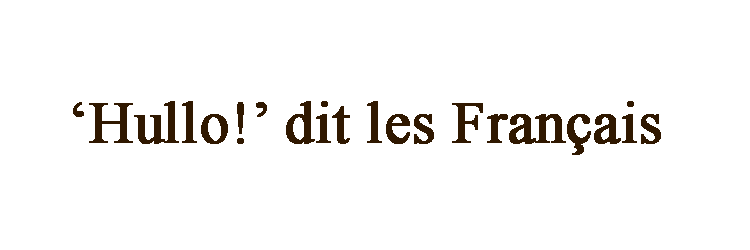|
|
| |
| |
Søren Kierkegaard (1813-1855) |
| |
The subjective us.... |
| |
some
of which is from Kierkegaard in 90 minutes by Paul Strathern. |
| |
| |
| |
| |
| ● |
‘A poet’s life begins in conflict
with the whole of existance,’ is a quote from Kierkegaard (according to
Strathern) although I can’t find the source, although ‘a poet’s life begins
in conflict with all life,’ comes from Kierkegaard’s Fear and Trembling,
which was published in 1843 under the pseudonym of Johannes de silentio
(John the Silent), or from his slightly later 1843 work: Repetition (Gjentagelsen)
which was written under the pseudonym of Constantin Constantius (‘for Regina’). |
| |
| ● |
Kierkegaard often speaks of the poet and surely
sees himself in that role. A poet has an inner
suffering, he feels, that can be expressed in beautiful words, but only
symbolically and
indirectly. Philosophical truth is like poetry in its form, for both the
poet and the
philosopher are in conflict with existence. |
| |
| ● |
From Strathern’s Introduction: |
| |
| |
It took some time for existentialism to catch
on. Some philosophers – such as Nietzsche, Husserl, and Heidegger – were
existentialists without realizing it (according to existentialists). Heidegger
vehemently denied this, and Nietzsche died before anyone could tell him
(1). Indeed, it wasn’t until almost a century
after Kierkegaard’s death that existentialism came into its own, with the
emergence of the French philosopher Jean-Paul Sartre in Paris after World
War II. |
| |
| |
The intellectuals of postwar Paris were in
despair (2): there was nothing for them to
believe in anymore. Surrealism, which had gained intellectual credence by
describing itself as absurd, had now been recognized as ridiculous. And
with the rise of Stalin, French intellectuals even found it difficult to
believe in communism (though they certainly tried). Then along came existentialism,
which didn’t require one to believe in anything at all. Indeed, it emphasized
that despair was part of the human condition. (3) |
| |
(1) |
Sorry, I’m amused by the way this is evoked. |
| |
(2) |
This is just them being typically despondant
Frogs, isn’t it? |
| |
(3) |
Ahhhh! Those French are quite clever. |
| |
| |
| |
| A link to two of the poems that I was inspired
to read on their ability to portray us. Both are from the First World War.... |
| |
| |
|
|
|
| |
| |
| |
| I can see that you’ve done Wittgenstein
in 90 minutes Mr Strathern, but I find it difficult to see how this is really
possible (despite my having been so keen to quote your work here). Thank
you. |
| |
| |
| |
| |
| |

